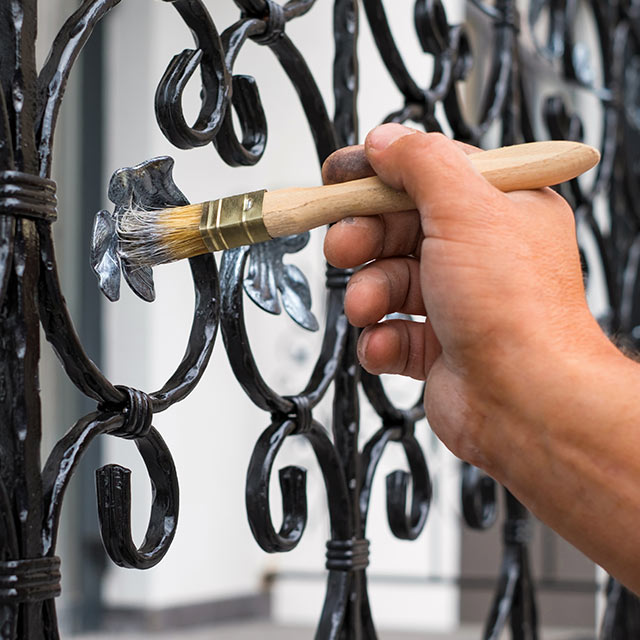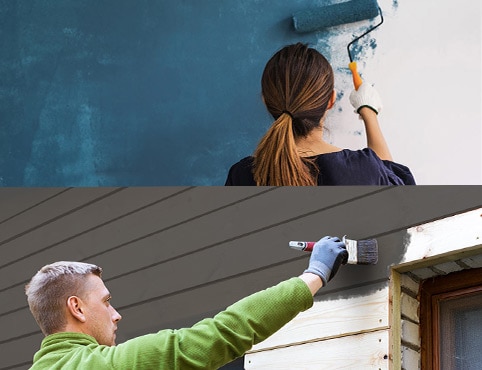Knowing what paint to use on metal, and how to paint metal, is critical to protecting and beautifying these special surfaces. It all starts with preparing the metal surface and choosing the right paint.
Step #1: Identify the Metal
To know the best paint for metal surfaces, including fences, it is important to identify the type of metal surface you are painting. Is it ferrous or non-ferrous? Ferrous metals include steel, cast iron and wrought iron. As the name suggests, ferrous metals contain iron (the chemical symbol for iron is Fe for the Latin ferrum). Therefore, they will be magnetic and susceptible to rust. Non-ferrous metals include aluminum, copper, stainless steel and zinc. They are usually lightweight and malleable (think ladders and gutters).
Note: Galvanized metal is steel with a thin outer coat of zinc to prevent rust. When painting, treat galvanized metal as non-ferrous. See our guide to painting galvanized metal for more.
Step #2: Prepare the Metal
Preparation is key to preparing metal for paint adhesion and long-lasting protection. Like any surface, metal will often contain contaminates, including existing paint, rust and oil. These impurities can inhibit adhesion, therefore must be removed before painting metal.
Oil is a common contaminate found on most metal surfaces. Use a cloth and a detergent or solvent like denatured alcohol to clean metal before painting or priming. Wipe the surface thoroughly. If the cleaner leaves a residue, rinse with water. Rust and corrosion are common in ferrous metals but also found in other metals. Remove rust with a wire brush, then remove dust with a damp cloth. If the metal has been painted previously, remove lose or scaling paint with a dull putty knife.
Step #3: Prime the Metal
Prime your metal surface to ensure rust inhibition and effective adhesion of your topcoat. Consider High Performance Acrylic Metal Primer for non-ferrous metals and High Performance Universal Metal Primer for ferrous metals. Applying your primer and topcoat should be similar to how you apply paint to trim.
Step #4: Paint the Metal
Choose your topcoat the same way you chose your primer. When finding the best type of paint for metal, again, consider High Performance DTM Acrylic Enamels for non-ferrous metals and High Performance Alkyd Urethane Enamels for ferrous metals. For priming and topcoating with a waterborne formula, use brushes with synthetic bristles like nylon or polyester. For alkyd formulas, use natural brushes, like China bristle. Ask your local Benjamin Moore retailer for advice on spraying.
Make sure you read all labels and instructions and allow proper dry time between coats. Also allow proper cure time before returning any freshly painted surface or object to use. If you have any questions, our Customer Support team is available toll-free, or you can ask us a question online.


